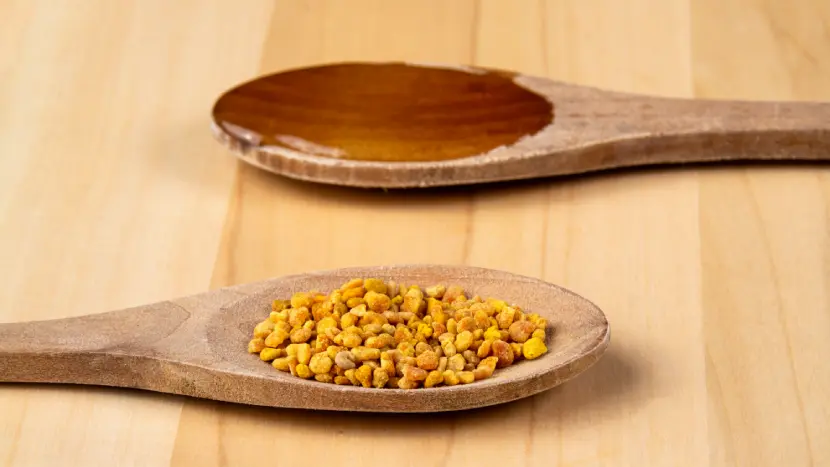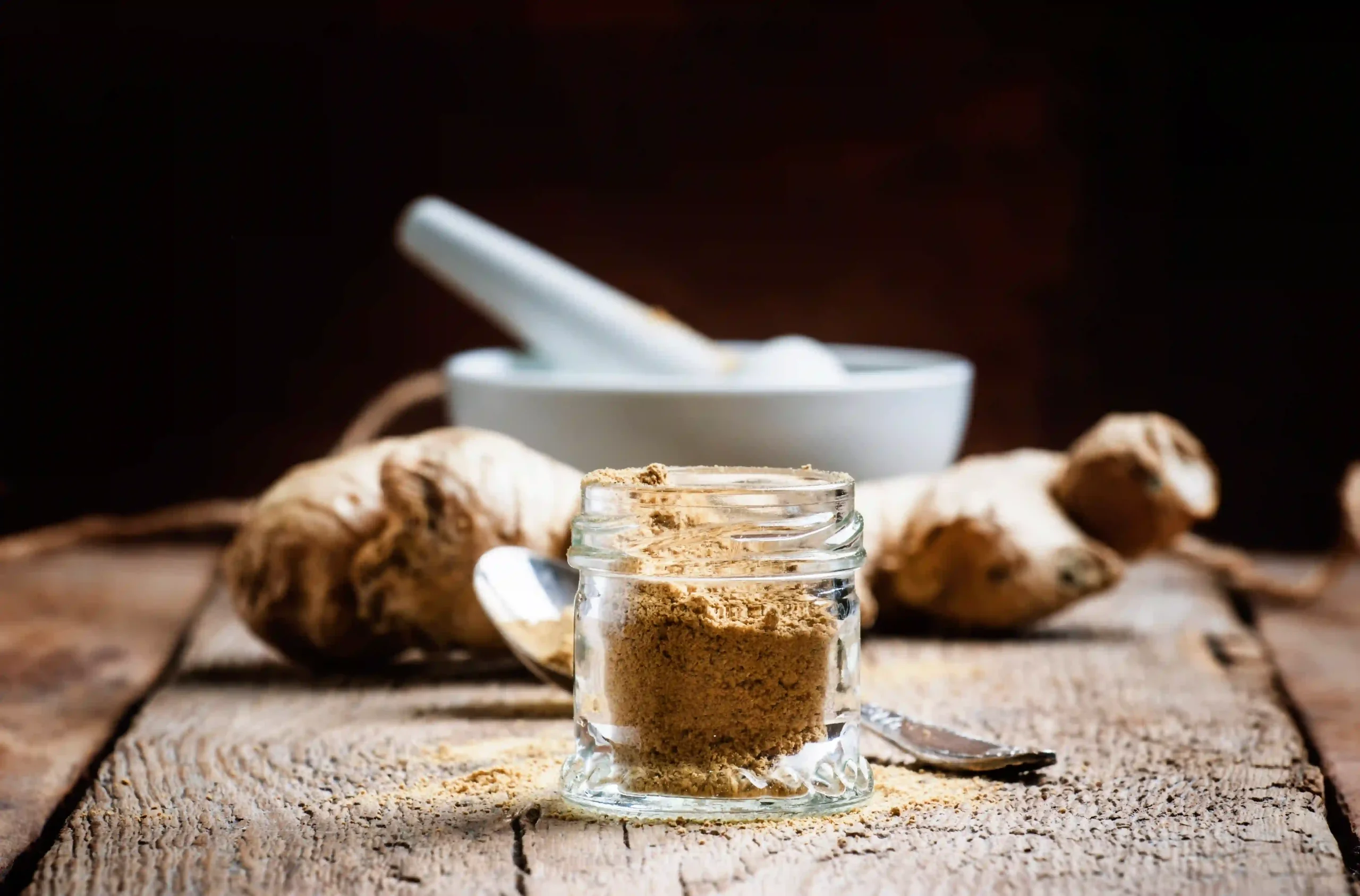What is Fenugreek? Understanding the Ancient Herb
Fenugreek powder comes from the seeds of the fenugreek plant (Trigonella foenum-graecum), an herb that has been treasured for thousands of years in traditional medicine and culinary applications. While fenugreek plants are native to Mediterranean regions and parts of Asia, today this versatile herb is cultivated worldwide for its remarkable properties.
Different Forms of Fenugreek (Seeds, Leaves, Powder)
When exploring fenugreek, you’ll encounter various forms, each offering unique benefits. Fenugreek leaves are often used fresh or dried in cooking, adding a slightly sweet, maple-like flavor to dishes. The seeds can be processed into fenugreek seed powder, which is one of the most concentrated and versatile forms of this herb. You might also find fenugreek oil, which is extracted from the seeds and used in various applications.
Historical Use and Cultural Significance
Throughout history, different cultures have incorporated fenugreek into their traditional medicine systems. From ancient Egypt to traditional Chinese medicine, fenugreek has been valued for its potential health-supporting properties.

The Nutritional Profile of Fenugreek Powder
Key Active Compounds
When you consume fenugreek powder, you’re getting a concentrated source of beneficial compounds. The most notable include:
- Diosgenin: A compound that may influence hormone production
- Trigonelline: A plant alkaloid with potential blood sugar-regulating properties
- Galactomannan: A soluble fiber that may help with blood sugar control
- Saponins: Compounds that might contribute to various health benefits
Vitamins and Minerals
Fenugreek powder provides several essential nutrients:
- Iron: Important for oxygen transport and energy production
- Manganese: Supports bone health and wound healing
- Magnesium: Critical for muscle and nerve function
- Fiber: Both soluble and insoluble forms
- B vitamins: Including thiamine and riboflavin
Health Benefits Supported by Science
Hormonal Health and Natural Testosterone Support
Research suggests that fenugreek powder may support hormonal balance. Some studies indicate it might help boost testosterone levels naturally, making it popular among athletes and men looking to support their hormonal health. However, more research is needed to fully understand these effects.
Blood Sugar Management
One of the most well-studied benefits of fenugreek powder is its potential role in blood sugar management. The soluble fiber content, particularly galactomannan, may help slow down digestion and the absorption of carbohydrates, potentially supporting more stable blood sugar levels.
Digestive Health Benefits
The fiber content in fenugreek powder makes it beneficial for digestive health. Regular consumption may help:
- Support regular bowel movements
- Feed beneficial gut bacteria
- Promote feelings of fullness
- Aid in comfortable digestion
Beauty and Wellness Applications
Hair Care Benefits and Considerations
Many people explore the advantages of fenugreek seeds for hair health. The high protein and nicotinic acid content in fenugreek powder may support:
- Hair strength and thickness
- Scalp health
- Natural conditioning
While some users report positive results, it’s important to note that individual results can vary, and some people might experience side effects of fenugreek on hair if used improperly.
Skin Health Applications
The antioxidant properties in fenugreek powder have drawn significant attention in skincare routines. When applied topically or consumed internally, these natural compounds may help protect your skin from environmental stressors while supporting elasticity and maintaining a healthy complexion. Many users report positive results when incorporating this traditional herb into their beauty regimens.
Fenugreek for Women’s Health
Pregnancy and Lactation Support
For generations, women have turned to this beneficial herb during their motherhood journey. Research suggests it might support milk production in nursing mothers. However, if you’re considering using fenugreek powder during pregnancy or while nursing, it’s crucial to consult with your healthcare provider first. While traditional use is well-documented, more research is needed to fully understand its effects during pregnancy.
Menopause Management
Women experiencing menopause have reported finding comfort in adding this ancient herb to their wellness routines. The plant compounds may help address common menopausal symptoms. While research in this area is ongoing, some women report feeling more balanced when using it as part of their holistic approach to managing menopausal changes.
Breast Enhancement Claims
While there are numerous claims about natural breast enhancement, it’s important to approach this topic with a scientific mindset. Some studies suggest that the phytoestrogen compounds in fenugreek powder might influence breast tissue, but the evidence is not conclusive. Remember that results can vary significantly among individuals.
Different Forms and Preparations
Comparing Powder, Seeds, and Leaves
Consider your specific needs when choosing between different forms of this herb. The powdered form offers concentrated benefits and is easily incorporated into various preparations. Fresh leaves provide different nutritional benefits and are excellent for culinary uses. Fenugreek powder often provides the most convenient way to access the herb’s beneficial compounds.
Tea and Herbal Preparations
Creating herbal tea is a popular way to enjoy this beneficial herb. To prepare a soothing cup, simply steep fenugreek powder in hot water for 5-10 minutes. This preparation method allows for easy absorption of the herb’s water-soluble compounds. You can enhance the flavor by adding honey, lemon, or other complementary herbs.
Supplements: Capsules and Tablets
For those seeking convenience, supplements offer standardized dosing. When choosing a quality supplement, look for products that:
- Contain pure, high-quality powder without unnecessary additives
- Provide clear information about dosage and concentration
- Come from reputable manufacturers
- Include third-party testing certifications
How to Use Fenugreek Powder
Recommended Dosage Guidelines
The appropriate amount varies depending on your specific needs and health goals. Generally, studies have used doses ranging from 1-6 grams daily, divided into multiple servings. Start with a lower dose and gradually increase it while monitoring your body’s response. Remember that consistency often matters more than quantity.
Methods of Consumption
You can incorporate this versatile herb into your daily routine in several ways:
- Mix it into smoothies or protein shakes
- Add it to soups and sauces
- Include it in homemade bread or baking recipes
- Create therapeutic masks or pastes for external use
- Combine it with other beneficial herbs and spices
Storage and Shelf Life
To maintain potency, store your supplement in an airtight container in a cool, dry place away from direct sunlight. Properly stored, it can maintain its beneficial properties for up to one year. Check for any changes in color, smell, or texture that might indicate spoilage.
Special Applications
The versatility of fenugreek powder extends beyond basic health applications. Understanding its diverse uses can help you maximize its potential benefits while maintaining safety and effectiveness.
Athletic Performance
Athletes and fitness enthusiasts often incorporate fenugreek powder into their supplementation routines. Research suggests that when combined with resistance training, it may support:
- Muscle strength development
- Exercise recovery
- Natural testosterone levels
- Overall athletic performance
Aromatherapy and Essential Oils
While fenugreek oil is less common than some other essential oils, it offers unique properties. The oil extracted from these seeds contains compounds that may provide aromatic benefits. When properly diluted, fenugreek powder can be combined with carrier oils for various therapeutic applications.
Culinary Uses
In the kitchen, fenugreek powder serves as both a spice and a functional ingredient. Its maple-like aroma and slightly bitter taste can enhance:
- Curry dishes and sauces
- Homemade bread and pastries
- Pickles and preserves
- Spice blends and rubs

Choosing the Right Product
Quality Indicators
When selecting fenugreek powder, look for these quality markers:
- Color: Should be yellowish-brown without any grey or dark spots
- Aroma: Fresh, maple-like scent without any musty odors
- Texture: Fine, consistent powder without clumps
- Packaging: Airtight containers that protect from light and moisture
Different Forms for Different Needs
Your choice between various forms (powder, capsules, or tea) should align with your specific goals:
- Regular culinary use: Pure, food-grade fenugreek powder
- Therapeutic purposes: Standardized supplements
- Beauty applications: High-quality, pure powder suitable for topical use
- Tea preparation: Either powder or whole seeds for steeping
Where to Buy
Source your fenugreek powder from:
- Reputable health food stores
- Certified organic suppliers
- Well-reviewed online retailers
- Established supplement manufacturers
Safety and Precautions
Potential Side Effects
While generally considered safe, some users may experience:
- Digestive adjustments when first starting
- A maple-like body odor
- Blood sugar changes
- Mild allergic reactions in sensitive individuals
Drug Interactions
Exercise caution when combining fenugreek powder with:
- Blood thinning medications
- Diabetes medications
- Hormone therapies
- Thyroid medications
Allergies and Sensitivities
Before using any herbal supplement, understand that:
- Allergic reactions are possible, especially if you’re sensitive to legumes
- Start with a small amount to test for reactions
- Monitor your body’s response carefully
- Discontinue use if you experience adverse effects
Special Populations and Considerations
Monitoring and Adjustments
Different groups may need special consideration when using this supplement:
- Athletes should time intake around training sessions
- Those managing blood sugar should monitor levels closely
- Individuals with hormone-sensitive conditions should consult healthcare providers
- People taking medications should discuss potential interactions
Pregnant and Nursing Women
During pregnancy and lactation, many women seek natural ways to support their journey. While fenugreek powder has a long history of traditional use for supporting milk production, expectant mothers should approach supplementation with caution. Every pregnancy is unique, and what works well for one woman may not be suitable for another. Consulting with your healthcare provider becomes essential before incorporating any new supplement into your prenatal or postnatal routine.
People with Hormone-Sensitive Conditions
The relationship between fenugreek powder and hormonal balance requires careful consideration. Those with hormone-sensitive conditions should understand that this herb may influence hormone levels in various ways. Your healthcare provider can help evaluate whether this supplement aligns with your specific health situation and existing treatment plans.
Diabetic Individuals
People managing blood sugar levels should take particular care when incorporating this traditional herb into their routine. The natural compounds in fenugreek powder might influence glucose metabolism, necessitating careful monitoring of blood sugar levels and potential adjustments to existing medication regimens. Working closely with your healthcare team can help ensure safe and effective integration into your management plan.
Frequently Asked Questions
Q: How quickly can I expect to see results when using fenugreek powder?
A: Results vary significantly among individuals. While some may notice changes within a few weeks, others might need several months of consistent use. Focus on maintaining a regular routine rather than expecting immediate results.
Q: Can I take fenugreek powder on an empty stomach?
A: Starting with a small amount taken with food is recommended. Some people might experience digestive discomfort when taking supplements on an empty stomach.
Q: How does fenugreek powder compare to whole seeds for health benefits?
A: The powdered form often offers better absorption and convenience, though whole seeds provide similar benefits when properly prepared. Your choice might depend on your specific usage goals and preferences.
Q: Should I choose organic fenugreek powder?
A: Organic certification helps ensure your supplement is free from synthetic pesticides and fertilizers. However, the most important factor is choosing a high-quality product from a reputable source, whether organic or conventional.
Q: Can I use fenugreek powder in combination with other herbs?
A: Many traditional practices combine this herb with complementary botanicals. However, research each combination carefully and consult with a healthcare provider about potential interactions.
Conclusion and Recommendations
After examining the extensive research and traditional uses of this remarkable herb, it becomes clear that fenugreek powder offers numerous potential benefits when used appropriately. While scientific evidence supports many of its traditional applications, approaching its use with realistic expectations and proper guidance remains crucial. Consider starting with a modest amount and gradually adjusting based on your body’s response and specific health goals.
Remember that herbal supplements work best as part of a comprehensive approach to health, including proper nutrition, regular exercise, and adequate rest. While this ancient herb shows promise in various applications, it shouldn’t be viewed as a miracle solution but rather as one component of a balanced wellness strategy.
For optimal results, maintain consistency in your usage while closely monitoring your body’s response. Keep your healthcare provider informed about your supplementation choices, especially if you’re managing specific health conditions or taking medications. By taking a thoughtful, well-researched approach to incorporating this traditional herb into your routine, you can make the most of its potential benefits while minimizing any risks.



